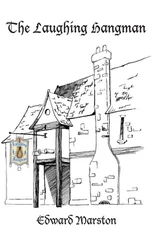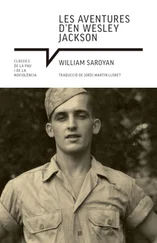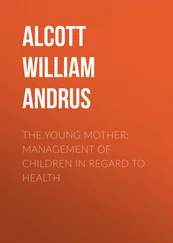“How far is it?”
“Very far. They’ve gone to Fresno.”
“I know. Fay knows the way. Walk over.”
“Can’t.”
“Please come over,” Red said. He called out to his father. “Papa, will you take me in the car to Flora’s house?”
“Sure,” Evan said.
“I’ll be right over,” Red said.
“All right,” Flora said.
Eva came out into the hall and said, “I want to go, too, Red. Papa, I want to go, too.”
“You can come,” Red said.
“He’s my brother,” Eva said to her father.
Red ran out into the parlor.
“Good-bye, Mama,” he said. “I’m going to Flora’s house. It’s very far. They’ve gone to Fresno in the car. Flora’s there with Mrs. Blotch. Eva’s going, too.”
His body danced as he spoke. He ran to the front door, saying, “Come on, Eva.”
Eva said, “Yesterday when I wanted to go, Mama, they wouldn’t let me. Remember? But today I am going. I’m going with my brother to Flora’s house. Is it Flora’s house? I think it’s Fanny’s. I’m coming, Red. Good-bye, Mama.”
From the porch Evan said, “Come on, Swan. Ride with us.”
“You take them and come back,” Swan said. “They’ve said such nice good-byes, I’d spoil it by going.”
“I’ll be only a few minutes,” the man said.
When they were gone she went to the telephone and called Palo Alto.
He didn’t speak a moment, then said, “I’m going back to New York. I’ve bought my ticket. Are you all right?”
“Yes,” she said.
“I mean——” he said. “I’ve been awfully worried about you. Are you sure you’re all right?”
“Yes. Yes,” she said.
“Well, take care of yourself,” he said. “Take care of your children.”
“Good-bye,” she said.
He was the one.
She knew it need not have happened. It had happened because she had insisted, but she could not then, or now, understand why. Had she forced it to happen in order to have come to pass what had come to pass?
She was glad he didn’t know, at any rate, perhaps didn’t even suspect.
She was suddenly overwhelmed by the absurdity of what had happened, but at the same time almost wished she could be with him once more, one last time, to seek to know perhaps one thing more, though what it was she could not guess.
She wept for him, and for his secret son.
She then went to the bathroom, vomited, and afterwards washed her hands and face.
The man drove slowly down the country road, loitering as if the car were himself.
“Do you know where it is?” Red said.
“Papa knows where everything is,” Eva said. “Don’t you, Papa?”
“Do I, Eva?”
“Of course, Papa.”
“Do you know where Flora’s house is?” Red said.
“It’s over here someplace,” Evan said.
“You see, Red,” Eva said. “He knows.”
“He doesn’t,” Red said. “He’s going to look for it. Over where someplace, Papa?”
“Down this road a little,” the man said, “or down the next road, or down some other road.”
“Down this road,” Red said, laughing. “Down the next, down some other. Where is it?”
“Papa knows,” Eva said. “Papa knows everything.”
“Papa knows everything,” Red said, laughing.
“Papa even knows when I was born,” Eva said. “Don’t you, Papa?”
“I think Red does, too,” the man said.
“Do you, Red?”
“Sure.”
“I don’t,” Eva said.
“How could you?” Red said. “You were just born.”
“I was me,” Eva said.
“I was me,” Red said, laughing.
Red was finding comedy in everything because he was going to see Flora Walz. His sister was finding love in everything because she hadn’t been left behind, because she was going with him, because there was —because there could be—love in everything.
Evan Nazarenus loved them, and they knew it. They knew it from the way he was their father again. The panic and the weeping were gone out of them because they recognized him again as the one who was their own father, a slim, slouching man with hair all over his fingers and arms, brown and red, not black like the hair on his head. His children loved one another now because they had seen their mother and their father through a whole day the way the best days they had ever known had been, their mother loving, their father loving, each of them quiet and patient, not loud and angry, or loud only on purpose, for fun, for the making of play, and angry only to make the play all the more interesting, the way Red, having learned from his father, pretended to be angry when he repeated the strange things his sister had said, the easygoing things his father had said, having fun about Red’s eagerness to get to Flora’s, Down this road, down the next, down the other .
Red and his father were going to have a talk sometime because his father had told him they were. It was going to be a talk about his father’s angry voice the other night. Sometimes Eva made Red angry. He pushed her sometimes, and she said he hit her, but he only pushed her. He had hit her, though. He had hit her a lot of times, but not as many times as she had made him angry. Sometimes he just let it go.
“That looks like a nice house,” Red said. “Maybe that’s Flora’s house.”
“Fanny’s,” Eva said. “It’s Fanny’s house. Fanny doesn’t cry when her head’s cracked open.”
“Fanny doesn’t cry when her head’s cracked open,” Red said, laughing. “Fanny doesn’t cry when she cries , I suppose. Fanny laughs when she cries, I suppose.”
“Fanny laughs when she cries!” Eva said. “Isn’t that funny, Papa?”
The house was neither Flora’s nor Fanny’s. The name on the mailbox was Amos Blotch.
It’s around here somewhere, the man thought. If it’s his wife who’s staying with the girls, they are probably neighbors.
He wanted to surprise his son and his daughter by driving right in, by taking that chance, or by catching the name on the mailbox in time to make the arrival neat and natural, make it seem as if he did know. He knew it would thrill the girl, and make the boy feel good. It would make him feel good, too, because so far they had not wandered around, they had gone straight down a road, they hadn’t stopped and gone back, or tried another road.
He saw a white frame house, as clean as it could be, set back from the road fifty yards or so with a lot of lawn up front and two enormous eucalyptus trees. He believed this might be the house of Warren and May Walz. He didn’t make out the name on the box, for the lettering had faded, but he drove right in, all the way up the driveway, and there he saw the three girls in the large back yard, a very old olive tree at the far end of it, and a woman with glasses sitting in a canvas chair, reading a book.
“You see, Red?” Eva said. “Papa does know where everything is.”
“Did you know where it was, Papa?” Red said.
“Well, here we are,” the man said. “There’s Fay and Fanny and Flora.”
He stopped the car and Red and Eva jumped out and ran to the girls, who ran to them.
The woman got up, keeping her place in the book she was reading, and smiled.
The man greeted her and said, “I hope they won’t be too much trouble. If you’ll telephone when they’re ready to come home, I’ll come and get them.”
“Do you want them to stop when it’s dark?” the woman asked.
“Whenever the Walz girls are ready to stop will be all right,” he said. “They’ve had naps and a peaceful day.”
Читать дальше












